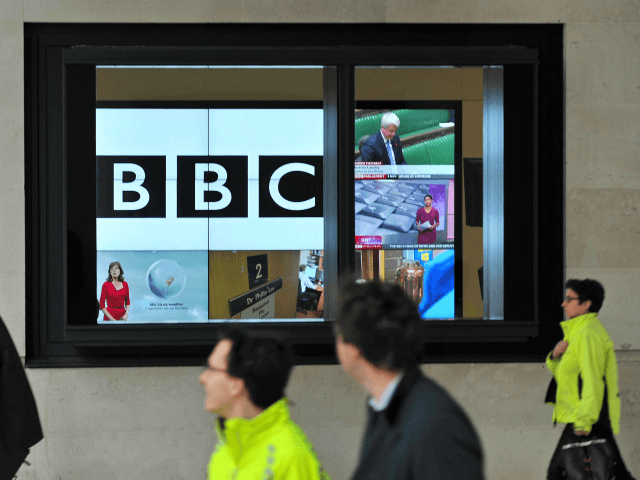The BBC has formally banned climate ‘deniers’ from the airwaves.
Not that anyone is going to notice – it has been this way for years – but the BBC has now issued a directive forbidding them airtime
Here are the BBC’s official guidelines on the subject:
Editorial Policy
Climate change has been a difficult subject for the BBC, and we get coverage of it wrong too often. The climate science community is clear that humans have changed the climate, but specifically how is more difficult to evidence. For instance, there is very high confidence that there will be more extreme events – floods, droughts, heatwaves etc. – but attributing an individual event, such as the UK’s winter floods in 2013/2014, to climate change is much less certain.
We must also be careful to distinguish between the statements. For example: “Climate change makes this kind of event both more frequent and more severe,” and “Climate change caused this event”. The former uses previous scientific evidence to say ‘it is likely’ the event is the result of climate change, whereas the latter may be making an assertion without the proof to back it up.
What’s the BBC’s position?
-
Man-made climate change exists: If the science proves it we should report it. The BBC accepts that the best science on the issue is the IPCC’s position, set out above.
-
Be aware of ‘false balance’: As climate change is accepted as happening, you do not need a ‘denier’ to balance the debate. Although there are those who disagree with the IPCC’s position, very few of them now go so far as to deny that climate change is happening. To achieve impartiality, you do not need to include outright deniers of climate change in BBC coverage, in the same way you would not have someone denying that Manchester United won 2-0 last Saturday. The referee has spoken. However, the BBC does not exclude any shade of opinion from its output, and with appropriate challenge from a knowledgeable interviewer, there may be occasions to hear from a denier.
-
There are occasions where contrarians and sceptics should be included within climate change and sustainability debates. These may include, for instance, debating the speed and intensity of what will happen in the future, or what policies government should adopt. Again, journalists need to be aware of the guest’s viewpoint and how to challenge it effectively. As with all topics, we must make clear to the audience which organisation the speaker represents, potentially how that group is funded and whether they are speaking with authority from a scientific perspective – in short, making their affiliations and previously expressed opinions clear.
The guidelines were reiterated in a letter to staff from the BBC’s director of news and current affairs, Fran Unsworth.
She began:
Dear all
After a summer of heatwaves, floods and extreme weather, environment stories have become front of mind for our audiences. There are a number of important related news events in the coming months – including the latest report from the UN Intergovernmental Panel on Climate Change and Green Great Britain Week in October – so there will be many more stories to cover. Younger audiences, in particular, have told us they’d like to see more journalism on the issue.
As Paul Homewood notes, this tells you everything you need to know about the impartiality and accuracy of the BBC’s climate science coverage:
Heatwaves, floods and extreme weather are merely weather events, and have nothing to do with climate change, though evidently the BBC thinks they do.
Inevitably this silencing of their opposition has caused much crowing among climate alarmists:
Excellent. These new guidelines will save people like me having to go on @BBCr4today the next day to set the record straight when the people who heard the original misleading statements won't necessarily be listening https://t.co/VGEPUP3VzC https://t.co/Xo8N4JHXOE
— Peter Stott (@StottPeter) September 8, 2018
The problem is, the more airtime the BBC gives to the likes of Stott the more unreliable its climate coverage is going to be. After all, climate alarmists have a pretty excellent track record of getting the predictions wrong time and time again.
Homewood helpfully draws our attention to an article published by the Guardian in 2012:
He would not be thinking about instances like this, would he?
And here is one the experts it quotes:
The news could be disconcerting for fans of the British summer. Because when it comes to global warming, we can forget the jolly predictions of Jeremy Clarkson and his ilk of a Mediterranean climate in which we lounge among the olive groves of Yorkshire sipping a fine Scottish champagne. The truth is likely to be much duller, and much nastier – and we have already had a taste of it. “We will see lots more floods, droughts, such as we’ve had this year in the UK,” says Peter Stott, leader of the climate change monitoring and attribution team at the Met Office.“Climate change is not a nice slow progression where the global climate warms by a few degrees. It means a much greater variability, far more extremes of weather.”
Presumably it’s to protect us from us all from #fakenews like this that from now on the BBC will only be taking its advice from climate experts…
…like, er, Met Office scientist Peter Stott.


COMMENTS
Please let us know if you're having issues with commenting.